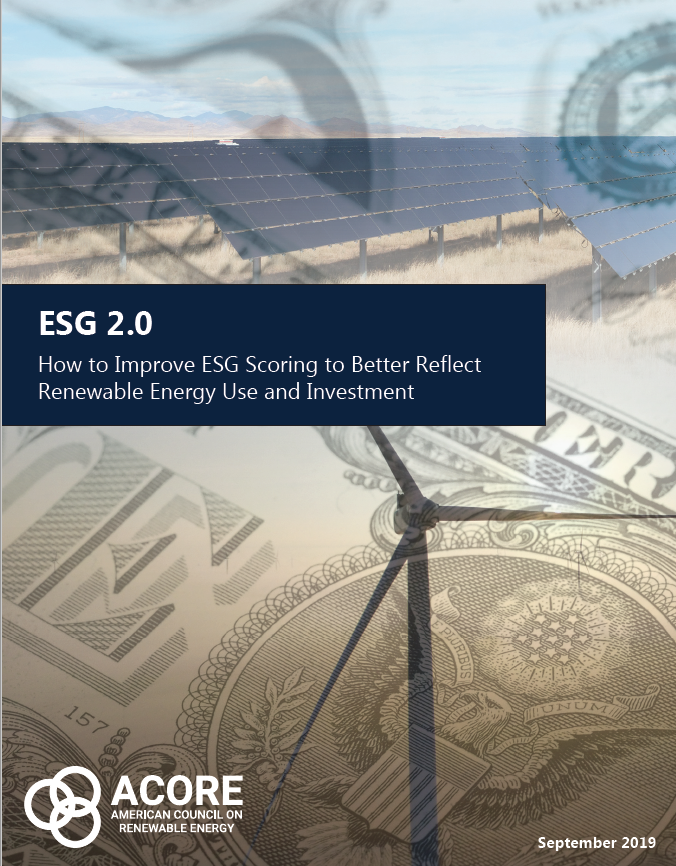- Sustainable Investing & ESG
- Reports
ESG 2.0: How to Improve ESG Scoring to Better Reflect Renewable Energy Use and Investment
[sdm_download id=”6157″ fancy=”0″]

In the white paper, ESG 2.0: How to Improve ESG Scoring to Better Reflect Renewable Energy Use and Investment, the American Council on Renewable Energy (ACORE) explores the current state of environmental, social and governance (ESG) investing in the U.S. and provides recommendations for ESG methodologies that better reflect renewable energy use and investment.
This report was developed in consultation with 30 prominent financial institutions, energy companies and corporations, including BlackRock Inc., Hannon Armstrong, Impax Asset Management, Invenergy, Pattern Energy, Solebury Trout LLC, Wilson Sonsini Goodrich & Rosati LLP, and other members of ACORE’s ESG Working Group.
The potential allocation of ESG funds to renewable energy investment presents an immense opportunity to enhance renewable sector growth. In this report, ACORE recommends the ESG community adopt the following practices to increase standardization, transparency and use of material indicators in ESG scoring:
- Enhance Renewable Energy Disclosure in Scope 1-3 Emissions. The extent to which companies drive additionality through their methods of renewable energy procurement, i.e., whether they add new renewable generation to the grid, should be more accurately captured in companies’ Scope 1-3 emissions reporting for their ESG scores.
- Provide Credit for Avoided Emissions. Capital providers should receive credit for avoided GHG emissions attributable to their investment decisions.
- Implement Standardized, Material and Forward-Looking Data Reporting. To provide meaningful comparisons, ESG scoring should increasingly rely on widely agreed upon data inputs. In order to be impactful, ESG scoring based on that widely agreed upon data should include forward-looking analysis capable of holding rated companies accountable for progress over time.
- Adopt a Universal Climate Benchmark. ESG scoring should help accelerate the transition to a decarbonized economy. International initiatives like the Paris Climate Agreement and U.N. Sustainable Development Goals can provide a common global benchmark against which companies’ ESG performance can be judged.
[sdm_download id=”6157″ fancy=”0″]
Join leaders from across the clean energy sector.

What will our next 20 years look like? Here’s the truth: they’ll be better with ACORE at the forefront of energy policy.
Shannon Kellogg
Amazon Web Services (AWS)
